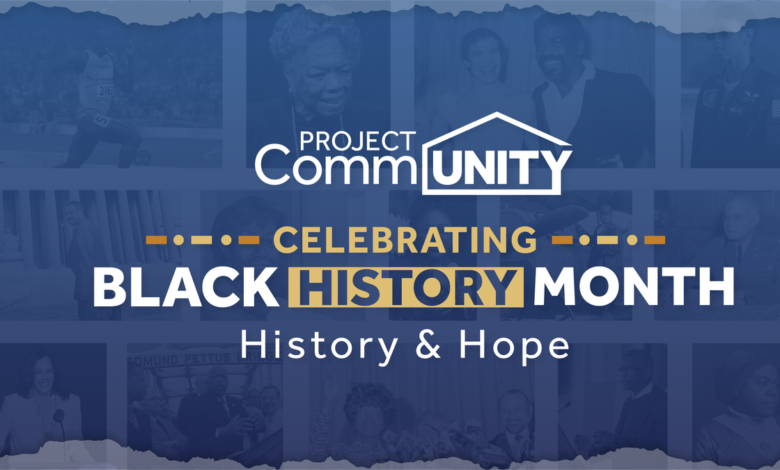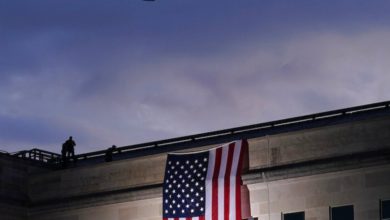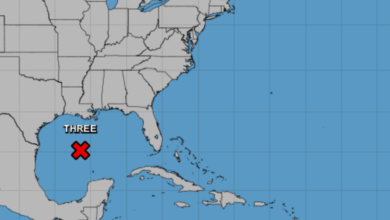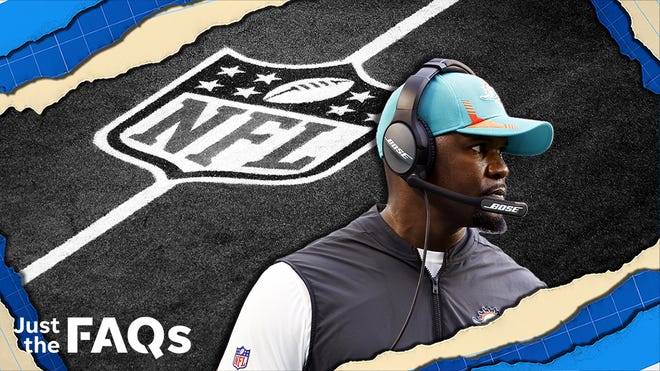

This month, Hearst Television is celebrating Black history by having courageous conversations. The fight for civil rights and justice goes back generations and has looked different each decade. We’re speaking with community leaders, elders – those who have lived through victories and troubled times, to talk about their experiences, and compare them with what we still struggle with today. You can watch all of our conversations with these community leaders below. A new conversation will be added each day in February. Birmingham, AlabamaVeraneice Wheeler was born and raised in Birmingham, Alabama. The 91-year-old lived through the civil rights movement and worked as a nurse for 15 years during segregation when Black nurses were limited on their duties. Her late husband was involved in the local NAACP chapter and he made it a family mission to help register Black people to vote amid constant threats of violence."They hung nooses for him because he was a real fighter for civil rights. One time the children were small, I don't think they even remember, we had threats on our home because of segregation. One time they had to watch our house because we had bomb threats."Read more of Veraneice Wheeler's story.Harrisburg, PennsylvaniaPhyllis Bennett, of suburban Harrisburg, Pennsylvania, is known to many as a speaker, radio host, consultant and award-winning advocate. Bennett applauds the efforts of the new generation for taking a stand against racial inequalities but said it won’t be enough to eliminate the issues."As long as we have systemic racism and different aspects of our society – racism in education, medicine, police – unless and until we get some reforms in economic, social and judicial justice, it's going to continue to be a problem."Read more of Phyllis Bennett's story.Seaside, CaliforniaJohn Nash, who grew up in the segregated south before he moved to Seaside, California, where he's lived for more than six decades, said he's hopeful for change."We can't sit back and wait (for) somebody do it for us. ...We got to get out and push. ...We get a little ways and we get comfortable," Nash said.Read more of John Nash's story.Omaha, NebraskaPatricia Brown remembers the night she cooked dinner for Martin Luther King Jr. Decades later, she reflects on the civil rights era and its impact today.“When Dr. King walked across the bridge and they had the hose on them, trying to keep them from coming down the bridge and John Lewis was hit in the head, you could see that. But the thing is, I’m thinking with George Floyd they’re starting to say enough is enough. Enough is enough,” Brown said.Read more of Patricia Brown's story.Louisville, KentuckyAs she watched coverage of the January insurrection from her West Louisville, Kentucky, home, Mattie Jones was reminded of "Bloody Sunday" in 1965.“I was there when they beat John Lewis to a bloody pulp and when I saw them climbing the walls and taking over the Capitol, my thoughts then said, 'Look what we have created here by allowing the institutionalized — or slick racism — to keep on existing,'" Jones said. Read more of Mattie Jones' story.Albuquerque, New MexicoJoseph Powdrell grew up in Crosbyton, Texas, at a time when its schools were still segregated. "I always wanted to experience things like microscopes and stuff like that," Powdrell said. "We had none of that. We simply had a classroom, paper and none of that. And that's when I started to feel like we're missing something here. There was a white high school right down the street from us. They had everything. Biology labs — they did everything, and then I'm starting to wonder, 'Why do they have that? ... Why are we deprived of certain things?' And the word 'racism' wasn't mentioned."Read more of Joseph Powdrell's story.Pittsburgh, PennsylvaniaJim Crable took a moment to reflect on a painful history he had with racism, starting with his time in Brownsville, where he was born and went to grade school. "I knew that I was different. I knew I was a different color," Crable said. "And in a lot of cases, when some folks got mad at me, they'd let me know I was a different color when they'd pick up a pet name to call me."Read more of Jim Crable's story.Orlando, FloridaGeorge Starke Jr. was the first African American to ever attend the University of Florida Law School. "On Sept. 15, 1958, when I went to University of Florida, I didn't know what to expect," he said. "I got to meet some of my classmates. Some of who really weren't my classmates, I didn't know it at the time. Two of them were Florida Highway Patrol. They had been assigned to ensure my safety. They didn't know what to expect either."Read more of George Starke Jr.'s story.
This month, Hearst Television is celebrating Black history by having courageous conversations. The fight for civil rights and justice goes back generations and has looked different each decade. We’re speaking with community leaders, elders – those who have lived through victories and troubled times, to talk about their experiences, and compare them with what we still struggle with today.
You can watch all of our conversations with these community leaders below. A new conversation will be added each day in February.
Birmingham, Alabama
Veraneice Wheeler was born and raised in Birmingham, Alabama. The 91-year-old lived through the civil rights movement and worked as a nurse for 15 years during segregation when Black nurses were limited on their duties. Her late husband was involved in the local NAACP chapter and he made it a family mission to help register Black people to vote amid constant threats of violence.
"They hung nooses for him because he was a real fighter for civil rights. One time the children were small, I don't think they even remember, we had threats on our home because of segregation. One time they had to watch our house because we had bomb threats."
Read more of Veraneice Wheeler's story.
Harrisburg, Pennsylvania
Phyllis Bennett, of suburban Harrisburg, Pennsylvania, is known to many as a speaker, radio host, consultant and award-winning advocate. Bennett applauds the efforts of the new generation for taking a stand against racial inequalities but said it won’t be enough to eliminate the issues.
"As long as we have systemic racism and different aspects of our society – racism in education, medicine, police – unless and until we get some reforms in economic, social and judicial justice, it's going to continue to be a problem."
Read more of Phyllis Bennett's story.
Seaside, California
John Nash, who grew up in the segregated south before he moved to Seaside, California, where he's lived for more than six decades, said he's hopeful for change.
"We can't sit back and wait (for) somebody do it for us. ...We got to get out and push. ...We get a little ways and we get comfortable," Nash said.
Read more of John Nash's story.
Omaha, Nebraska
Patricia Brown remembers the night she cooked dinner for Martin Luther King Jr. Decades later, she reflects on the civil rights era and its impact today.
“When Dr. King walked across the bridge and they had the hose on them, trying to keep them from coming down the bridge and John Lewis was hit in the head, you could see that. But the thing is, I’m thinking with George Floyd they’re starting to say enough is enough. Enough is enough,” Brown said.
Read more of Patricia Brown's story.
Louisville, Kentucky
As she watched coverage of the January insurrection from her West Louisville, Kentucky, home, Mattie Jones was reminded of "Bloody Sunday" in 1965.
“I was there when they beat John Lewis to a bloody pulp and when I saw them climbing the walls and taking over the Capitol, my thoughts then said, 'Look what we have created here by allowing the institutionalized — or slick racism — to keep on existing,'" Jones said.
Read more of Mattie Jones' story.
Albuquerque, New Mexico
Joseph Powdrell grew up in Crosbyton, Texas, at a time when its schools were still segregated.
"I always wanted to experience things like microscopes and stuff like that," Powdrell said. "We had none of that. We simply had a classroom, paper and none of that. And that's when I started to feel like we're missing something here. There was a white high school right down the street from us. They had everything. Biology labs — they did everything, and then I'm starting to wonder, 'Why do they have that? ... Why are we deprived of certain things?' And the word 'racism' wasn't mentioned."
Read more of Joseph Powdrell's story.
Pittsburgh, Pennsylvania
Jim Crable took a moment to reflect on a painful history he had with racism, starting with his time in Brownsville, where he was born and went to grade school.
"I knew that I was different. I knew I was a different color," Crable said. "And in a lot of cases, when some folks got mad at me, they'd let me know I was a different color when they'd pick up a pet name to call me."
Read more of Jim Crable's story.
Orlando, Florida
George Starke Jr. was the first African American to ever attend the University of Florida Law School.
"On Sept. 15, 1958, when I went to University of Florida, I didn't know what to expect," he said. "I got to meet some of my classmates. Some of who really weren't my classmates, I didn't know it at the time. Two of them were Florida Highway Patrol. They had been assigned to ensure my safety. They didn't know what to expect either."
Source link









